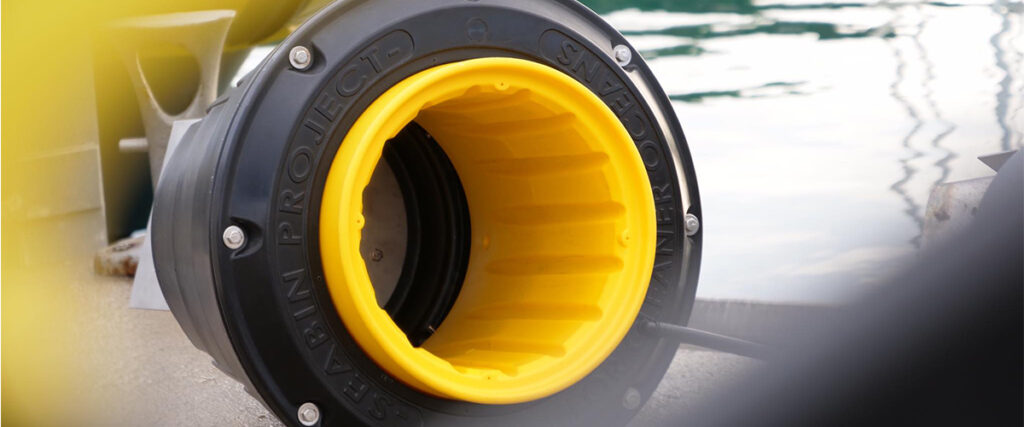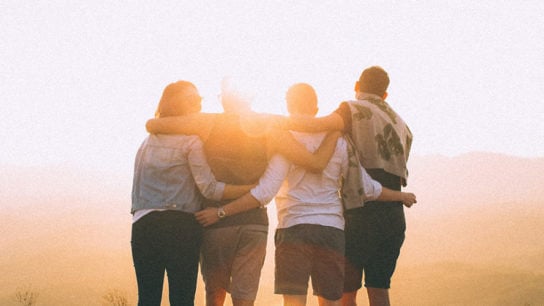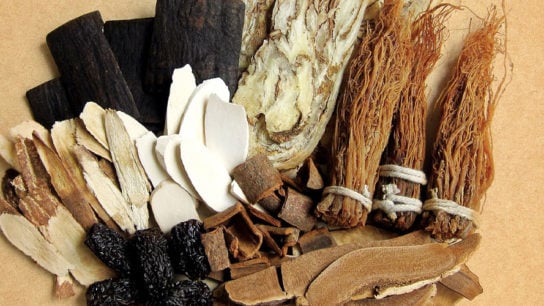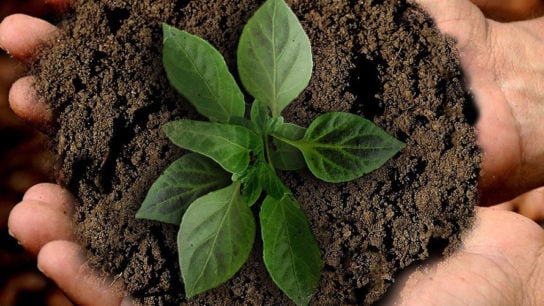Stephanie Chai, CEO of luxury villa booking portal The Luxe Nomad, has turned her attention to the plight of our oceans, partnering with Seabin to try and keep our waterways clean.
It was by accident that Stephanie Chai stumbled across Seabin’s video. Founded by Andrew Turton and Pete Ceglinski, the patented product was developed in France on the catchy premise that, if you can have rubbish bins on land, then why not in our desperately over-polluted oceans? As the CEO of a travel business that’s all about connecting her clients with amazing experiences around the world, Stephanie wanted to do something to help protect that planet she was encouraging people to see. And so she launched a successful fundraising campaign, surpassing her initial expectations, as a means of covering the costs of having the seabin built, shipped over from France and installed at the Aberdeen Marina Club. Determined that this be the first of many Seabin installations, she sits down with us to explain why sitting on the sidelines with issues like these is simply not an option.
Hailing from East Malaysia, Stephanie, a former model and television personality, founded Asia-Pacific’s leading luxury villa and hotel booking portal, The Luxe Nomad, in 2012. As of now, The Luxe Nomad has 1,500 listings in 33 destinations, and has expanded to Kuala Lumpur and Hong Kong, making it one of the most high profile luxury websites in the region. Since the company’s motto “dream a little, travel a lot” encourages tourists to visit different countries, Stephanie quickly realised that the environment guests discovered on their journeys was a fundamental part of the experience. As she puts it herself, “you don’t really want to be swimming in the water with pollution floating around.”
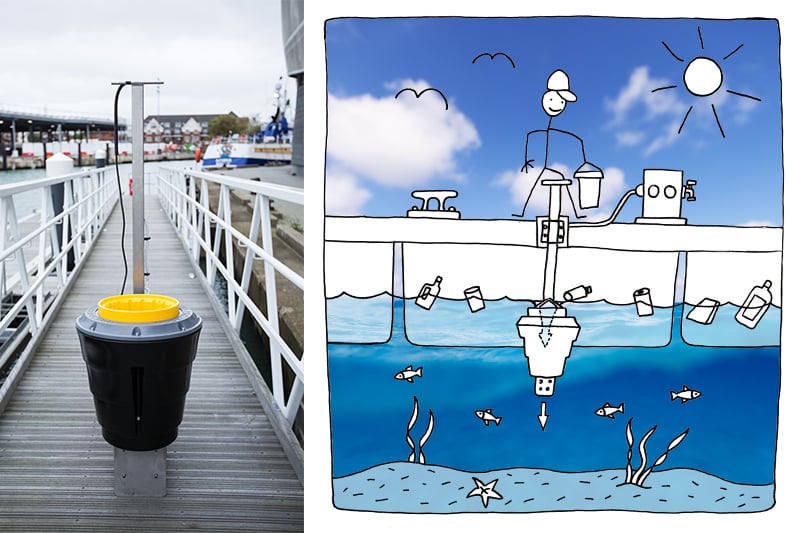
It was on a boat trip in Hong Kong that she realised that that was exactly what was happening. “A big part of Hong Kong life is going boating in the summer. And I think last summer I didn’t even want to jump in the water. I just wanted to stay on the boat.” This realisation, coupled with headlines highlighting just how dire the situation was becoming in our seas, spurred her on to action. “When you run a business, you don’t really have a lot of time, so I thought this was something I could do later,” she explains. “But given the fact that our oceans have such a tremendous amount of water bottles popping around, it’s really about time that we do something.”
On discovering Seabin via their promotional video, it struck Stephanie that here was the quickest way to take action, so she launched a crowdfunding campaign to install one in Hong Kong’s Aberdeen Marina. The invention, as its name describes, is a floating bin which organically attracts rubbish swept in by the currents. It can catch an estimated 1.5 kg of floating debris per day, including microfabrics up to 2mm small. With a catch bag that can hold up to 20 kg of debris, one Seabin can collect 90,000 plastic bags, 35,700 disposable cups, 16,500 plastic bottles and 166,500 plastic utensils in one year – making a big difference, quickly. After observing the product at work in Singapore, she became convinced of its effectiveness. “They’ve actually got a couple of Seabins in Singapore already, and they told me they had to switch them off at night because there was so much rubbish coming in,” she tells us. “The bin was actually overflowing, and that was quite a surprise for me.”
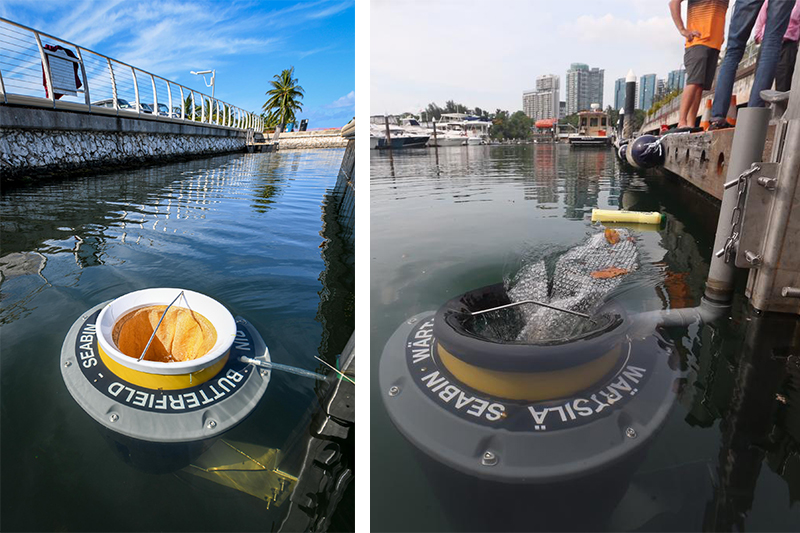
Stephanie has encountered a lack of enthusiasm for her new project in some corners, saying that one friend commented, “it’s just one bin, it’s not going to make a huge difference.” But she remains convinced. “It’s easy to be cynical and say “well, this is not going to solve the issue, what’s the point”, but it really is better to do something rather than nothing. It doesn’t matter how small or how big.” Next up, she hopes to help install Seabins in other areas around Hong Kong and Asia, and has also set her sights on Bali, one of The Luxe Nomad’s most popular locations where there are huge problems arising from the amount of rubbish found on its beaches . “You need a different approach for that, but I think on the whole, a lot of people are passionate about doing this. So it’s really encouraging to see that people are supportive and active about the issue.” In the end, for Stephanie, it all boils down to “doing your own small part, even if it’s just changing your own habits. Even if you can’t get it right 100% of the time, I think 90% of the time is good effort.”
Related Articles
8 Sustainability Startups in Hong Kong to Watch
Distinctive Action: The Sustainability Startup Reducing HK’s Plastic Waste
Christina Dean: The Woman Leading a Global Movement in Fashion Sustainability
